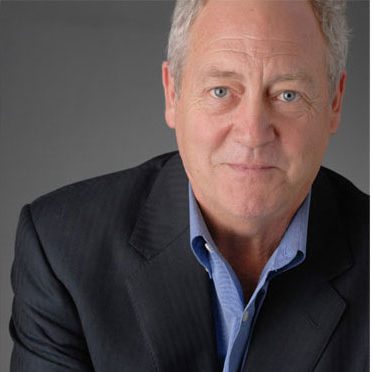Dispelling myths key, speaker says
Published: November 7, 2007
by Ciaran Dickson
November 7, 2007
By dispelling some myths about the effects of pesticides and genetically modified (GM) foods, Canadians will be able to achieve sustainable agriculture, according to Patrick Moore of Greenspirit Strategies.
Moore was one of five speakers at Farm Credit Canada’s AgriSuccess Forum, held in Regina on Tuesday. The ex-activist spoke of the irrational fears surrounding the effects of GM foods on human health, the alleged link between pesticide residue and cancer, and renewable energy source myths.
Moore said not only are these myths ripe with fear, but the fear comes from misinformation and “flat-out lies” by environmental extremists. He credits these extremists with infiltrating the political movement, “bringing their neo-Marxism with them.”
They’ve learned to use green language in a clever way, cloaking policies that have more to do with anti-capitalism and anti-globalization than anything to do with science or ecology, Moore said.
“The only way (for some environmentalists) to remain confrontational and anti-establishment was to adopt ever more extreme policies, eventually abandoning science and logic altogether in zero-tolerance positions.” Moore said.
Moore, a co-founder of Greenpeace, said he left the environmental organization after this extremism began to appear. He said he now offers people solutions on what they can do, instead of telling them what they can’t do — with a scientific background and evidence.
Moore said one myth that directly affects the agricultural world is that of exotic species being depicted as inherently bad. He asks how people can forget that nearly all of Canada’s agriculture is based on exotic species.
He offered the example of corn being grown in Europe and Asia as an exotic species, and points to California, which has more than 375 different species of agriculture — all of which are exotic species. He said native species and exotic species are both important, but are deemed good or bad by the effect they have on our economy, not on health.
He also spoke of fear of what he calls “invisible poisons” and campaigns that argue the alleged negative effects of pesticides.
He also spoke of research by the Canadian and U.S. cancer agencies, which looked at a relationship between cancer and pesticides. After the five-year study was completed, the agencies said they couldn’t find a single piece of evidence linking pesticide residue in foods to cancer in people. He said the most current campaign that fits in this category is that against GM foods.
“The campaign against GM foods is based on fantasy, contrivance, sensationalism and outright misinformation,” Moore said. “I find this to be the most despicable campaign.”
Climate change has been blown out of proportion, Moore said. He said the Earth is only about two degrees warmer than it was during the last ice age, and despite all the talk of global warming, there hasn’t been a warmer year than 1998 since the thermometer was invented.
“We do know that glaciers are retreating around the world,” Moore said. “Why are glaciers perceived as something important? They are just big globs of frozen water. Nothing grows on them, they are basically dead zones. When the glaciers retreat, trees come in … and a healthy ecosystem re-emerges. Ice and frost are the enemies of life.”
Moore also stressed the need to use alternatives to fossil fuels, such as geothermal and nuclear energy. He said that in order to reduce emissions, these are the most effective types of energy. He claimed that Greenpeace is opposed to most types of current renewable energy, including hydroelectric power, which produces far more energy than other renewable sources.
“There is a super abundance of energy underneath your home,” he said, referring to geothermal energy, adding the energy could be accessed by using a ground-source heat pump. “This is a revolutionary technology that could get fossil fuels out of every building in the country because it is universally applicable to any building.”


Pingback: Faulty Logic Fuels Fossil Fools – Enjeux énergies et environnement